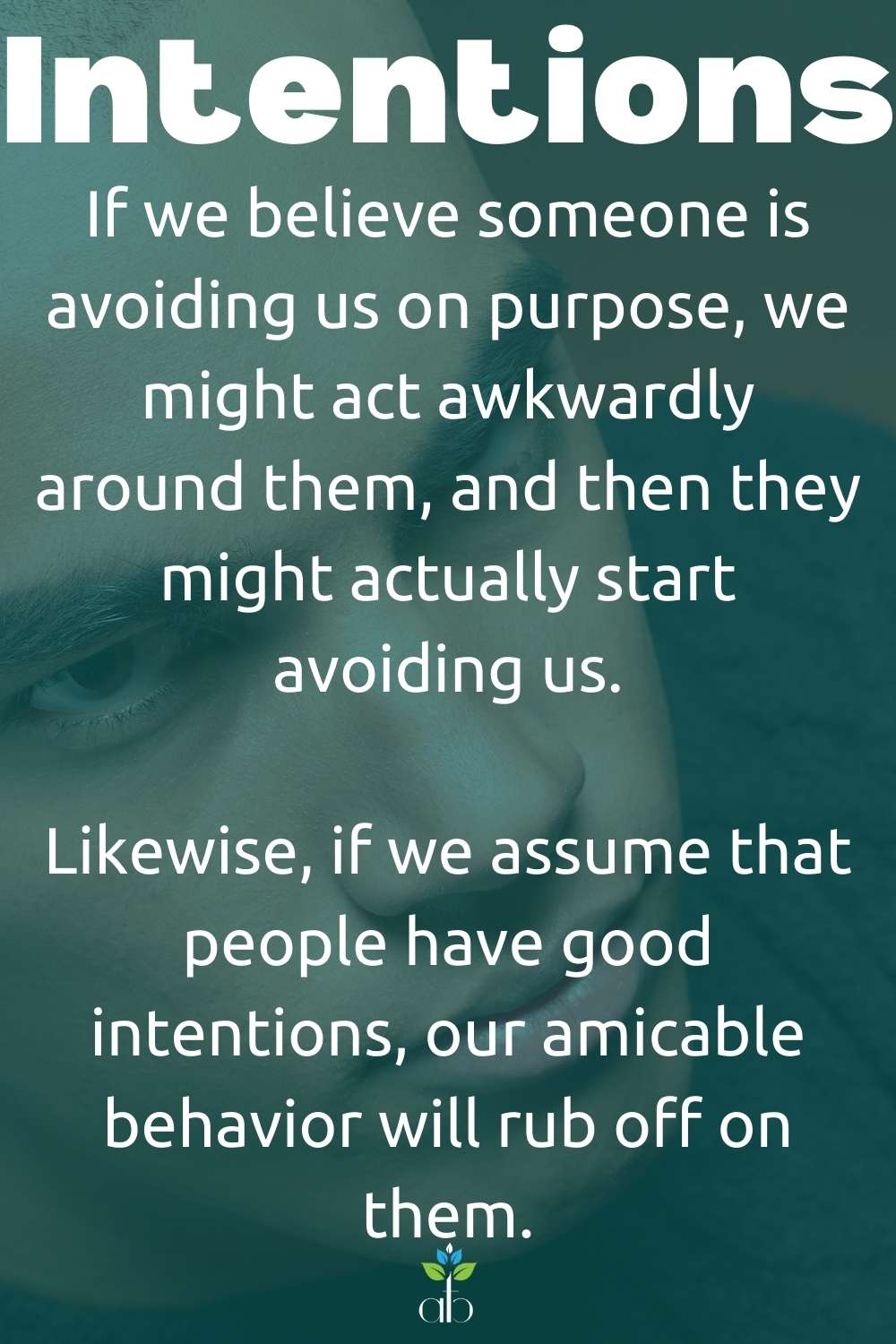Episode 446
Second Guessing

In the Marx Brothers movie Duck Soup, there is a famous scene where the president of Freedonia, played by Groucho Marx, talks himself into believing that the foreign ambassador is going to refuse to shake his hand. Naturally, when the ambassador walks in, Groucho slaps him in the face.
It’s an absurd scene, and it’s also very incisive. Many times we believe we know the intentions of others, and we behave accordingly.
This almost always has consequences in our relationships. If we believe someone is avoiding us on purpose, then we might start to act awkwardly around them, and soon enough they might start avoiding us, even if they weren’t previously.
We can never know others’ intentions perfectly, and so it makes sense to assume that there are things we do not know.
Hosts & Guests
Kurt Robinson
Resources
Transcript
Welcome, beautiful thinkers!
I’d like to talk to you about “Second Guessing” or “Imagining other people’s intentions.”
Sometimes we think we know when other people intend.
And we actually have no idea we might, for some reason, assume they have bad intentions, perhaps because of some insecurity within us.
We interpret things as insults, when perhaps they’re entirely innocent.
And you know, even if somebody does intended insult, we don’t necessarily need to attribute malice to it.
It might be still with a kind of innocence, or perhaps we don’t really need to read too much into things.
I think about this scene from Duck Soup, the famous movie from the Marx Brothers.
When this movie came out, it was banned by Mussolini in Italy.
The Marx Brothers were apparently ecstatic.
Mussolini supposedly had interpreted this movie as an insult towards himself.
It wasn’t that the Marx Brothers were so pleased that this kind of satire was seen as so subversive that it will be seen, well, then it would be banned in an entire country.
This scene, I really love this, this scene.
So Mrs. Teasdale, comes in and says, she’s trying to smooth things over between Rufus T. Firefly played by Groucho Marx, who is the head of Freedonia in this script, in the in this imagined world.
And Mrs. Teasdale is trying to solve things between Fredonia and Sylvania, so there won’t be a war.
And Rufus Firefly says, “It’s a noble thing you did, Mrs. Teasdale. I’d be unworthy of the high trust that’s been placed in me if I didn’t do everything in my power to keep our beloved Freedonia in peace with the world.”
“I’d be only too happy to meet with Ambassador Trentino and offer him on behalf of my country, the right hand of good fellowship. And I feel sure he will accept this gesture in the spirit in which it is offered. But suppose he doesn’t. A fine thing that’ll be.”
“I hold up my hand, but he refuses to accept. That I’ll add a lot to my prestige, won’t it? The head of a country’s snubbed by a foreign ambassador. Who does he think he is that he can come here and make a sap me in front of all my people? Think of it!”
“I hold out my hand and that hyenna refuses to accept. While the cheap foul flushing swine, he’ll never get away with it, I tell you, he’ll never get away with it!”
And then when the ambassador enters Firefly promptly slaps him in the face and causes a war.
Part of the reason that scene holds up today, of course, it’s the kind of satire of international relations, who knows, on what flimsy threads and what bad threads, international relations are held together by when it comes to the egos of presidents and on the national leaders.
But this is also just about human nature. Firefly is imagining this scenario that seems plausible within his own head. Because he starts to believe it, he starts to get a little emotional about it. And he mistakes it for reality and then acts accordingly.
And insults the ambassador in exactly the way that he is afraid of.
It seems ridiculous when it’s laid out like this, it’s humorous, is a kind of reduction to absurdity.
But people do these kinds of things all the time.
We think that we know what other people intend for us, and we act in in accordance with our expectations of their intentions, and these become self fulfilling prophecies, people start to treat us with bad intentions because we believe they had bad intentions.
If we start avoiding somebody, because we believe they have bad intentions, they start to question well, “what is up with this guy anyway?” And they might not be so nice to us in the future.
So, if we let go of these things, let go of our confidence in our assessment of other people’s intentions.
Now, I know this, this isn’t hard to do.
Maybe we think we have a good read on the situation. But maybe we don’t.
Maybe we absolutely have no idea what’s going on in people’s minds as hard as we might try to understand them.
We can assume good intent, or at least neutral intent.
And generally, I think people will treat us nicer because we believe that the world is a nice place.
Or as Louise Hay says, “We believe that all the world is helpful, that everybody is helpful. Everybody is out to help me out and I’m here to help us out.”
It’s likely that our beliefs will come true.

New Episodes Every Weekday
11am Mexico City time
10 min episodes Monday - Thursday
1 h interview episode on Fridays
As an Amazon Associate I earn from qualifying purchases.
Stay Beautiful &
Stay Connected
